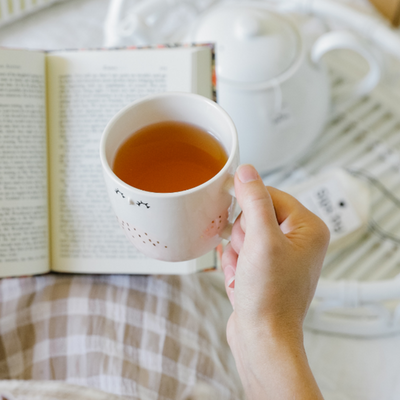
There are two types of morning beverage drinkers: tea people and coffee people. But why can’t we all just get along?
While there’s quite a difference between match and coffee, we think these delicious morning (and afternoon… and evening) drinks can easily exist in harmony. Let’s dive into matcha and coffee together to discover all of their delicious traits.
Sips by is the #1 rated tea club. Made by tea lovers for tea lovers, our personalized tea discovery box matches you with 4 new premium teas chosen from thousands of top-rated teas based on your unique taste preferences. Learn more about our tea of the month club.
A Brief History of Matcha
If you haven’t heard of matcha, you’ve probably seen it. Nowadays, matcha is a trendy drink additive that is well-known for its earthy taste and vibrant green color. Coffee shops around the country sell matcha lattes and trendy matcha teas. But what is matcha, and where did it come from?
Matcha is a powdered form of green tea that originated in China. Eventually, the drink made its way over to Japan, where Buddhist monks used matcha to aid in their meditation practices. Over the years, matcha became an integral part of Japanese culture.
The Japanese tea ceremony is an ancient tradition in which drinkers partake in matcha tea as a way to connect with those around them. In fact, the Japanese consider the preparation of matcha to be a form of art.
While matcha is made from green tea leaves, the two are actually quite different.
Matcha comes from the Camellia sinensis plant, the same plant that black tea and normal green tea come from. However, tea plants intended for matcha production are grown differently.
They are raised in greater amounts of shade, which results in greater levels of caffeine and L-theanine. Matcha is also made using the whole tea leaf, which makes the fine green powder much stronger than typical green tea.
-
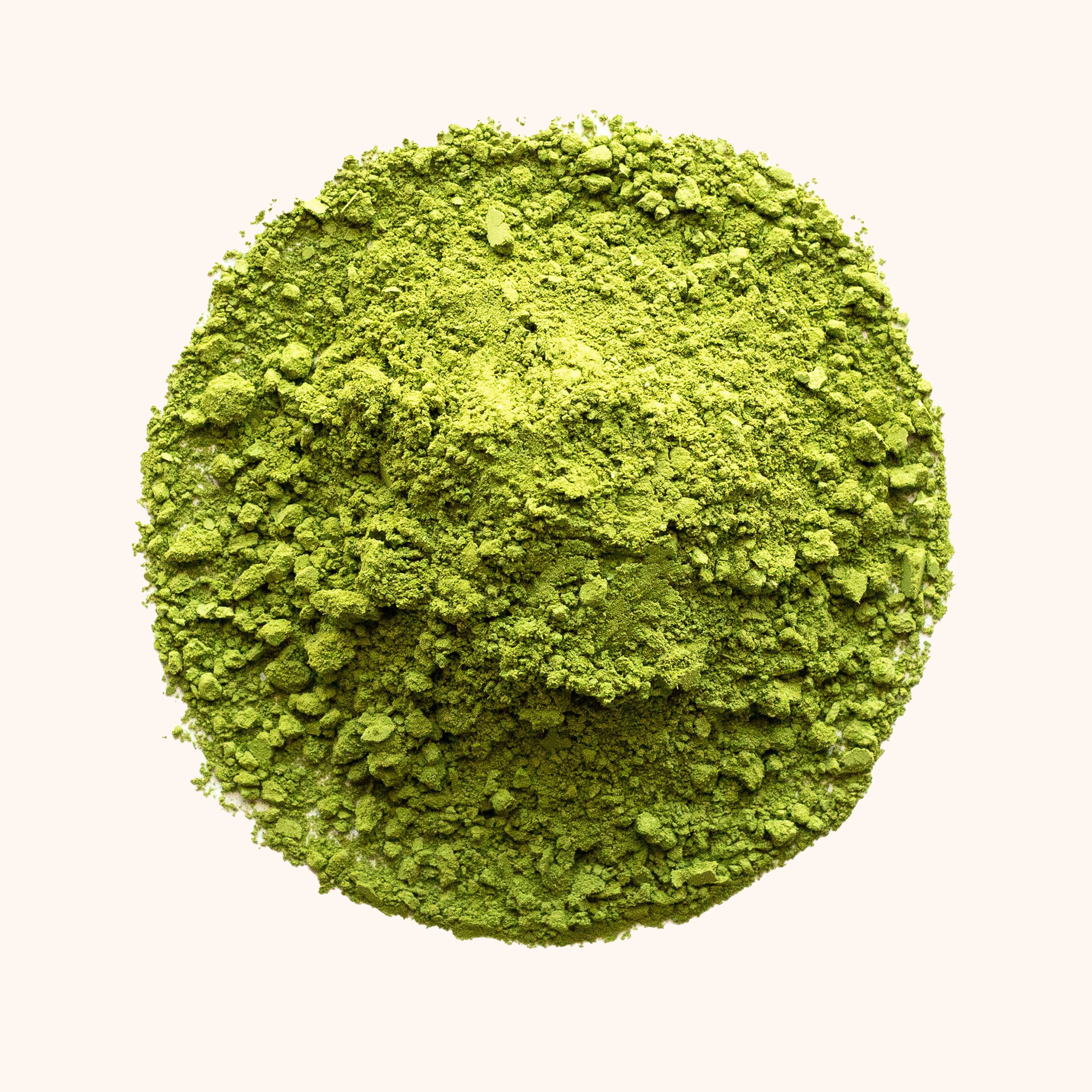 Sold out
Sold out
A Brief History of Coffee
Coffee is almost a religion among loyal drinkers. Many drink coffee first thing in the morning and sip on it throughout the day. Although it may seem that coffee is popular today, the reality is that coffee has always been a hit.
Ethiopian farmers first discovered coffee around 100 BCE. At first, natives used the coffee fruit as the base for several juices and alcoholic beverages. Eventually, they finally stumbled upon the joy of roasted coffee beans around 1200 BCE.
Thus, our modern roasted bean water was born. Monks began to drink coffee to stay awake during long prayer sessions, very similar to matcha.
Europeans began planting coffee plantations in the 1600s, and soon coffee houses spread across France and Italy. Coffee houses were instantly popular because they afforded people of all classes a place to congregate and share ideas.
Coffee took root in America during the Revolutionary War in 1773 when the Colonies began to drink more coffee in order to distance themselves from Britain’s tea-drinking habits. This further escalated in the War of 1812, when the American Colonies were cut off from Britain’s tea trade. What started as a patriotic statement became a thing of necessity as Americans flocked to coffee for their daily caffeine fix.
The first British coffee roaster arrived in 1833, and roasted coffee quickly spread along the East Coast. Finally, the Prohibition movement between 1919 and 1933 solidified coffee as the American drink of choice, since many were left without their favorite boozy beverages.
Coffee is made from the plant family coffea rubiaceae, and it’s grown in Central and South America, Africa, the Middle East, and Asia. There are a few different species of coffee plants, each of which yields a unique coffee flavor and texture.
Nutritional Benefits
While coffee and matcha may sound like two totally different beverages, they actually have a similar amount of nutritional benefits.
Matcha is rich in fiber, which helps support a healthy digestive system. Matcha also contains small amounts of vitamin C, chromium, magnesium, selenium, and zinc. Beyond its concoction of healthy vitamins and minerals, drinking a cup of matcha is also a great way to up your daily water intake.
Meanwhile, your morning cup of coffee contains healthy nutrients like vitamin B2, vitamin B3, magnesium, and potassium. Much like matcha, a cup or two a day can help you increase your total water consumption.
Health Benefits
Because matcha and coffee have such unique sets of nutrients, their health benefits are also different. Despite this, there are a few benefits that overlap between the two.
Rich in Antioxidants
Both coffee and matcha have soaring levels of antioxidants. However, the type of antioxidant in each one differs.
Matcha contains antioxidants like polyphenols, flavonoids, and catechins. Specifically, matcha contains a super powerful antioxidant called epigallocatechin gallate (or EGCG, for short).
On the other hand, coffee’s antioxidant lineup includes trigonellines, phenylalanines, and melanoidins. Although these are different antioxidants, the good news is that all antioxidants operate the same way to support your overall health and well-being. Antioxidants can help maintain the health of your cells, support a healthy heart, and support your wellness as you age.
Energy Boost
We have good news for our early birds: both coffee and matcha have high caffeine content. However, each drink provides its own unique energy boost.
One eight-ounce cup of brewed coffee contains 96 mg of caffeine, and one shot of espresso contains around 64 mg of caffeine. The maximum recommended daily amount of caffeine intake is 400 mg, which equates to around four cups of coffee.
Everyone has their own caffeine tolerance, so you may or may not be able to comfortably drink the full 400 mg of caffeine. If you’re prone to caffeine jitters, you may want to lessen your coffee consumption.
Meanwhile, an eight-ounce cup of quality matcha green tea contains around 70 mg of caffeine. For comparison, the same amount of green tea contains 28 mg of caffeine on average.
Matcha may have less caffeine than coffee, but it has an extra trick up its sleeve: an amino acid called L-theanine. L-theanine promotes relaxation and focus, which can help counteract the caffeine jitters.
Plus, the energy-boosting properties of L-theanine and catechins are absorbed differently by our bodies than the caffeine in coffee for a longer, more sustainable zap without that classic coffee crash.
Physical Longevity
Because both matcha powder and coffee contain similar caffeine levels, they can both lower your risk of developing age-related mental conditions. Caffeine particularly helps strengthen your mind so as to avoid mental degeneration and memory issues.
Both drinks are also associated with a lower risk of developing different forms of heart disease and liver disease. They can also help boost your metabolism and encourage healthy blood sugar levels.
Main Differences
Although the two share some benefits, there are some key differences. First, the colors are different. Matcha’s characteristic green color comes from an abundance of chlorophyll, which can promote several health benefits. Meanwhile, coffee’s dark color comes from the melanoidins.
Second, they are prepared differently. Coffee beans are roasted to bring out their flavor and caffeine content, while matcha leaves are exposed to oxidation in order to increase their caffeine content.
Some teas can taste remarkably like coffee due to oxidation or natural flavor additives. If you’re interested in giving them a try, we recommend checking out our selection of coffee-esque teas. We’ve been #obsessed with coffee-flavored tea recently, and we think you’ll like it too!
Both drinks are made with hot water. Coffee is brewed by running hot water through ground coffee beans and filtering out unwanted sediment. However, you brew matcha by mixing green tea powder with hot water until dissolved.
-
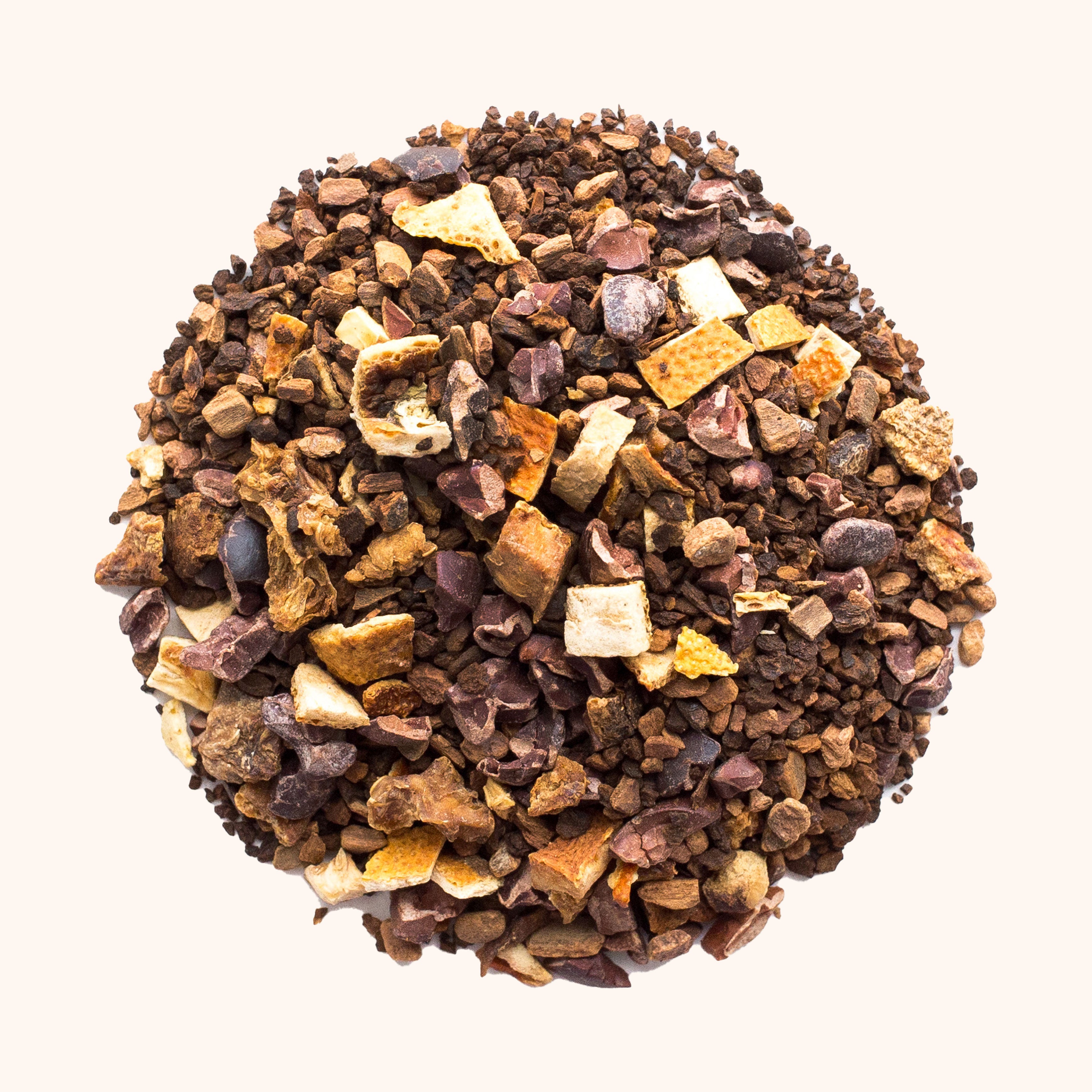 Sold out
Sold out -
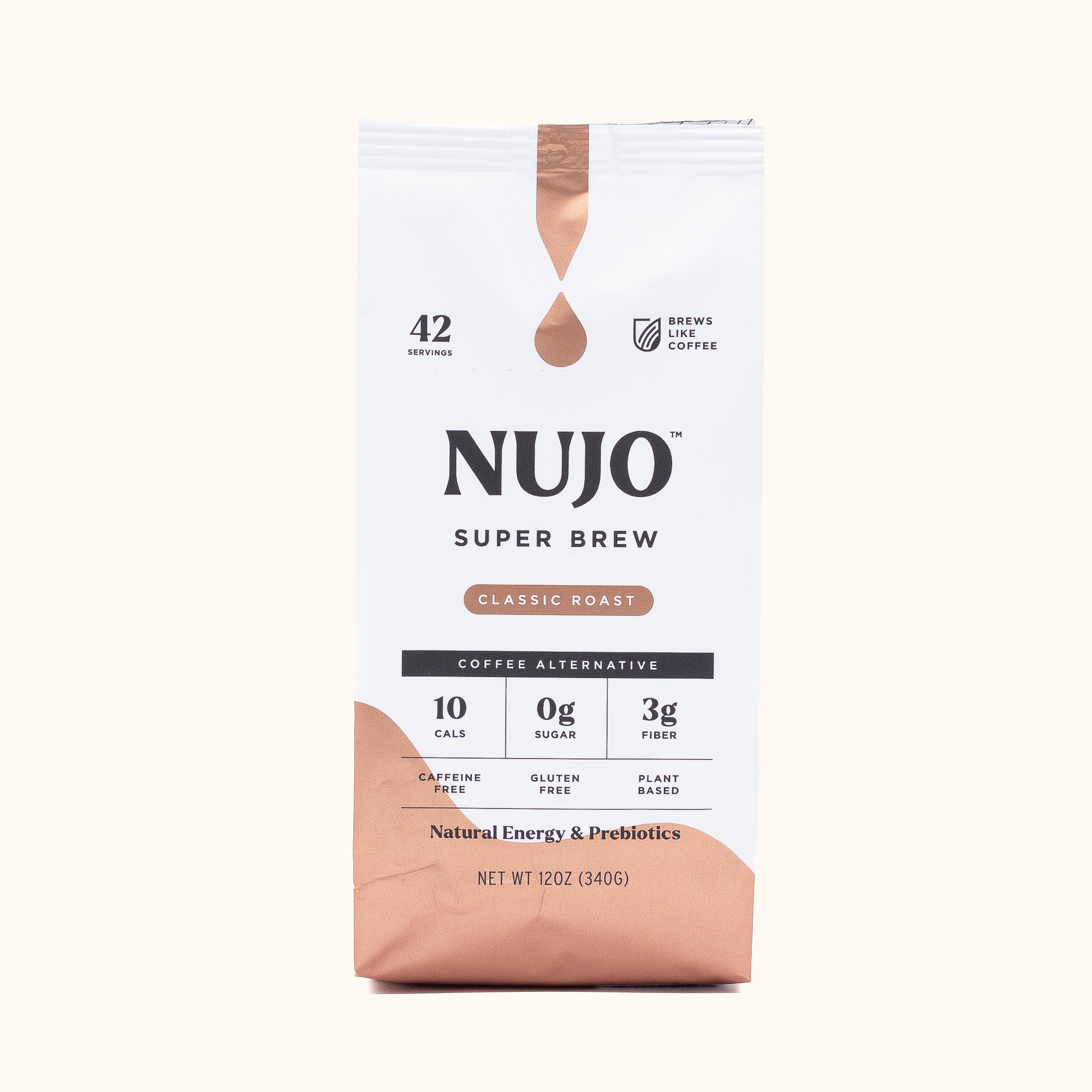 Sold out
Sold out -
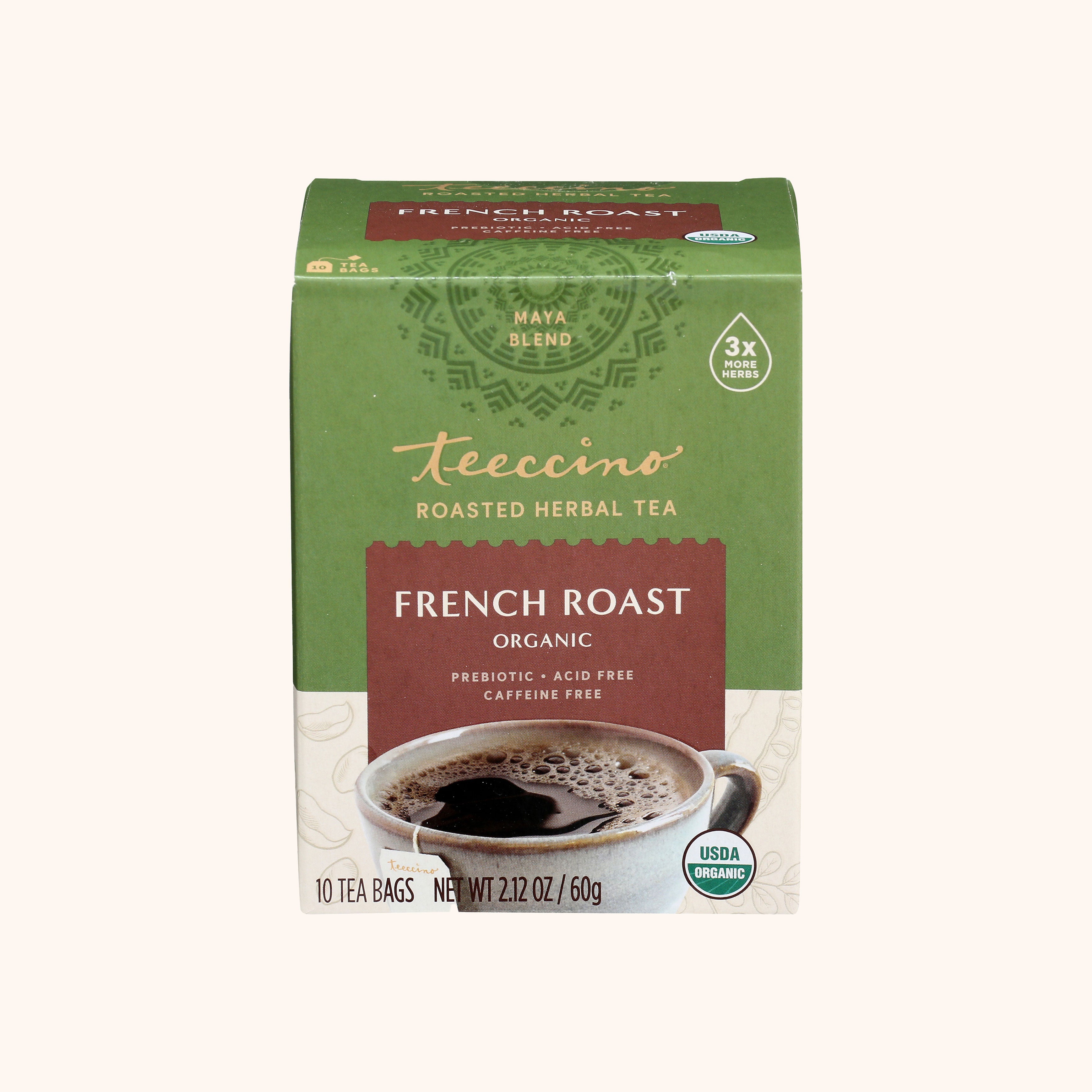 Sold out
Sold out
Which Is Better?
This depends entirely on your personal taste! Some people swear by coffee, while others love the rich taste of matcha. Why not embrace both?
If you really want to decide which one is best for you, we’ve decided to compare them.
Pros of Matcha
Matcha powder comes in many shapes and sizes. You can put matcha powder in smoothies, in milk for a matcha latte, in water for traditional matcha, or even use it in baking to add a rich earthy flavor.
Because of its L-theanine content, you may be better off drinking matcha if you are prone to caffeine jitters. You can drink more matcha while consuming less caffeine, and you also get the drink’s tension-reducing effects.
Cons of Matcha
There are a few downsides to matcha, believe it or not. Too much matcha can put you over your daily recommended amount of caffeine, which can have unpleasant side effects. Too much caffeine can cause symptoms like dizziness, shakiness, trouble sleeping, and headaches.
To avoid drinking too much caffeine, try to stay under four cups of matcha a day. Because everyone has a different tolerance for caffeine, make sure you’re listening to your body as you drink your matcha. Caffeine jitters and anxiety can be good indicators that it might be time to put down the matcha for the day. There’s always another chance to drink matcha tomorrow!
Pros of Coffee
If you prefer coffee for your morning routine, you’re in luck! Coffee is readily available around the nation, and even fast-food restaurants sell coffee alongside their breakfast sandwiches. It’s easy to come across, and you typically don’t have to travel far to find coffee.
Coffee also has more caffeine. If you’re in it for the caffeine fix, then a cup of Joe might be the move. You can get the same caffeine content for less effort, which makes it incredibly convenient.
If you love the taste of coffee but you’re trying to cut back on caffeine, check out our Coffee Alternatives Box! With a selection of four coffee-inspired teas, we’re sure you’ll find your new favorite coffee alternative.
Cons of Coffee
Because coffee has a lot of caffeine, it’s easy to accidentally drink too much. Most coffee drinkers can probably remember a time when they caught the caffeine jitters on accident. Plus, coffee can give you a gnarly crash.
Coffee can also come with lots of added flavors and sweeteners, which can quickly start to mitigate its health benefits. Even though we have many natural and artificial sugar alternatives, your options are limited while you’re out and about.
Final Thoughts
Although coffee and matcha tea are two fundamentally different drinks, they share some remarkably similar health benefits! In fact, the main differences between the two are the plants of origin, brewing method, taste, and caffeine content.
If you’re interested in making the switch to matcha, check out our online selection of flavored matcha, and follow our blog for tips and tricks on how to make a delicious cup.
Matcha Tea Shop
Savor the bold and rich flavors of matcha with our wide selection of different types of matcha tea. Matcha is an ancient Japanese Tea that gives you an energy boost while letting you detox with its anti-oxidant properties. Known for its healing powers, matcha tea benefits are massive. Our selection includes different matcha flavors ranging from matcha green teas to floral and fruity matcha drinks.

Interested in trying these teas and others? Subscribers receive 4 teas chosen just for them in every box. Learn more about our tea subscription box or explore the loose leaf tea shop.
About Sips by: We’re a female-founded and led startup that makes discovering tea fun, personalized, and affordable. The Sips by Box is the only multi-brand, personalized tea subscription box. Each month, we match tea drinkers across the U.S. with delicious teas from over 150 global tea brands that we’re sure they’ll love. Based out of Austin, Texas, we are adept at savoring a hot mug even when it’s seasonally inappropriate.
Sources:
Matcha: Health Benefits, Nutrients per Serving, Preparation Information, and More | WebMD
The Important Health Benefits Of Matcha Tea | Piedmont Healthcare
Antioxidant and Antiradical Activity of Coffee | PubMed Central
Tea | Harvard School of Public Health
Caffeine Content for Coffee, Tea, Soda and More | Mayo Clinic
Caffeine Intake and Dementia: Systematic Review and Meta-Analysis | PubMed Central






